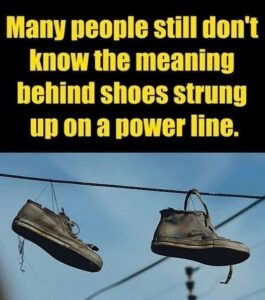I took this dad picture last weekend. At the church, he requested me to take some “candid” photos while handing out food boxes.
He looked professional—pressed suit, crimson tie, phony grin. The dude is a skilled actor.
Nobody at that ceremony knew—and the news hasn’t reported—that one of the families picking up those boxes was there because of him.
He dismissed all his downtown office cleaners two months ago. A chilly “we’re going in a different direction.” No severance or warning. Dalia, a cleaner, worked there for eight years. Her boy is in my class. She never said anything, but I watched her send him off at school in the rain with their car full of clothing and boxes.
It went together quickly.
Yesterday, we met again. At the donation event, not school. Keeping her head down, Dalia My dad shook her hand like strangers.
Even leaned over to me and said, “Make sure you get this angle—sunlight’s good here.”
I wanted to shout.
Instead, I gazed at him, wondering how many people he smiles at while trampling on their backs.
After I snapped this shot, Dalia removed something from her purse and walked approaching him.
Small notebooks were used to write grocery lists and phone numbers. I wondered whether she would hurl it at him or confront him in public. Instead, she gave it to him and said, “This is for you, Mr. Thompson.”
My father’s politician smile wavered briefly before recovering. “Thank you,” he murmured effortlessly, putting the notepad in his jacket pocket like a campaign donation. “Every little bit helps, doesn’t it?” He laughed casually, expecting her to join in or go on.
Dalia resisted. She murmured gently, “You should read it tonight,” staring him in the eye. It matters.” She turned and returned to her son waiting by the vehicles.
I kept thinking about the journal that night. Dad settled into his study after returning from his nightly fundraiser. I sneaked downstairs to listen at his door out of curiosity. I first heard pages turning, then quiet so lengthy I believed he was asleep. However, a rapid breath intake and a curse surprised me.
I risked looking through the door gap. My father was pallid and bent over his desk, reading glasses crooked. What was in that notepad had wrecked his equanimity. Marcus Thompson was unstaged for once.
Dad hardly touched his coffee at breakfast the next day. Mom noticed. Do you feel okay, Marcus? You look awful.”
“I’m fine,” he snapped, then softened. “Just exhausted. Long night.”
Later that day, unusual things transpired. Dad skipped his campaign events and spent hours on the phone in his study. I overheard him talking to attorneys and accountants about “settlement” and “disclosure.” He looked 10 years older during supper.
“Dad,” I said during our family supper, “what was in that notebook?”
He sighed after staring at me. “Things I should have known about months ago,” he said. Dalia recorded every hour of unpaid overtime, every safety violation we disregarded, and every bogus promise regarding benefits. She and several other colleagues shared their tales.
Mom gasped. “Marcus, this could ruin your campaign!”
“That’s not the point,” he said, scratching his temples. “My business and political campaign are based on lies and exploitation. People are more than numbers or campaign props. I personally affected their lives.”
My father showed me true guilt for the first time. The next week, he met with former employees, listened to their experiences, and arranged suitable compensation. His campaign team was astonished and terrified by the change.
Dad made a shocking surprise at his next public appearance instead of giving a polished speech about economic progress. Ladies and gentlemen, I must inform you. I have portrayed myself as a successful businessman and community leader for years. But recent events have showed me that genuine leadership is about honesty and accountability, not appearances.”
He explained his conduct to his former employees, assuming full responsibility. When he said he would drop out from the mayoral election to make apologies to people he hurt, the audience became quiet.
Intense media circus ensued. He was lauded for his honesty and criticized for grandstanding. I cared most about his change. He worked with local organizations to strengthen workers’ rights and created a fund for displaced workers.
At the grocery store months later, I saw Dalia. Her grin was warm when she saw me. “Your father has really changed, hasn’t he?” she asked.
I said, “Yeah,” still surprised. “He has.”
“That notebook wasn’t just documentation,” she said. He was also given advice for improvement. Alternatives to transient remedies to generate genuine opportunities.”
Her words resonated. Sometimes the worst facts may change us most. Watching my dad make errors taught me that genuine strength comes from admitting and fixing our faults.
I see now that Dalia’s notebook handover started a favorable chain reaction. I realized that courage may be as subtle as slipping someone a book containing facts they need to hear.
My dad is advising new entrepreneurs on business ethics as I write. The road from denial to redemption was difficult, but worth it. He’s discovering that success is determined by how we improve others’ lives, not titles or money accounts.
Remember this anecdote if you see a leader do wrong. Change frequently begins with one brave act, such as telling the truth, speaking out, or not looking away. Share this if you believe in responsibility and redemption. Let’s show that doing the right thing is never too late.




